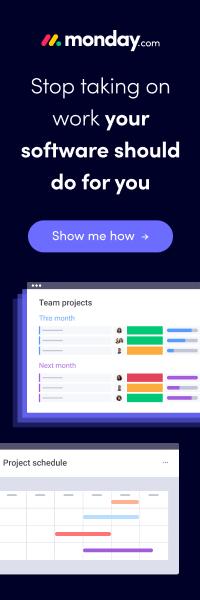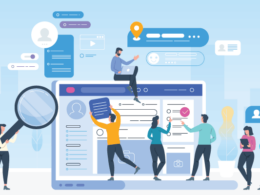As a business owner or executive, how long is your to-do list when you start each work day? With so much responsibility, you probably have a ton of items on that list that need to be dealt with to propel the company forward. It is probably a mix of things that affect either the day-to-day operations or the long-term objectives of the organization.
Either way, you have a lot on your shoulders. Something that decision-makers never want to see is inefficiency within the organization. When resources are being wasted, progress is slowed. Time, money, and human effort are the most important resources available to the business, and managing them is the key to growth.
To manage your resources effectively, you need the right tools. One of the most comprehensive products that can help with this is an enterprise resource planning program. ERPs are used by businesses, both big and small, to manage multiple applications and streamline operations. Let’s dive into some of the top benefits of an ERP system.
Accessibility
Most businesses elect to invest in a cloud-based ERP versus an on-premises tool. The reason is because of accessibility. Since an ERP is a computing tool, it makes sense that integration via the Internet plays a crucial role. Cloud-based ERPs place all the applications your team needs at their fingertips whenever they have a device with an Internet connection. That means they do not have to be using the office computers exclusively to get work done. If you want to have happier employees by offering remote options, they can still access your business tools through the Internet. If someone is traveling for work and still needs to get some things done, they just need a laptop. Accessibility ensures that work can get done more efficiently, no matter where your employees are.
Integration
If you have a large stack of 30 applications that your company uses, that probably makes many of your processes easier. However, if none of them can integrate very well, then your workload increases by having to manually transfer information between them. When applications are hosted by a one-stop shop ERP like Netsuite, one of the titans of the ERP market, then it is simpler for all these tools to integrate smoothly. This means less time is spent interpreting data and manually sending materials between applications and more time focusing on the important work. If you are not sure how integration works, you can seek GSI services to help you out.
Reduced Overhead
Adopting ERPs is often a cost-saving strategy for business owners. The reason is that your overhead can be significantly reduced when you unify your applications into one hosting service. That means you are paying for far fewer separate licensing fees, often because the application options come in discounted bundles. Additionally, processes across the company can be streamlined, reducing the amount of time spent on various tasks so that your employees can focus on more important initiatives. This lowers the total costs your company must pay because everything is getting accomplished faster. Also, faster communication means smoother collaboration to prevent costly delays and interruptions with your projects.
Less Micromanaging
Micromanaging can be dangerous for a company’s prospects. When employees feel micromanaged, they are often less productive because they feel unhappy with how they are being led. Additionally, being controlling can stunt innovation and creativity in your employees, making it unlikely that they will find more innovative solutions for how they do their jobs. ERPs make room for project management, performance management, workflow organization, and customer feedback systems. Employee feedback tools can integrate with customer service responses and sales initiatives, creating clear opportunities for employees to understand their responsibilities without direction coming from a boss. Workflow applications can keep everyone on the same page with what task belongs to whom for a project. The result is less micromanaging from decision-makers, which can put employees in an uncomfortable position.
Stronger Security
When you use an ERP system, you are likely dealing with a lot of data. That information could be compromising for either customers or the company itself if it falls into the wrong hands. Fortunately, with all the data in one place, it is much easier to control access. Additionally, many ERPs can use enhanced cybersecurity measures to defend against malware, phishing, and other types of data breaches.
Make Sure an ERP System is Right For Your Business
You might look at these benefits and think that adopting ERPs is the most obvious response. However, an ERP system may not work for your business, depending on how it operates. New businesses especially do not need the computing capacity and integration that an ERP provides, so you would probably be wasting money on the system without getting to leverage all its benefits. Take a look at your current process and see if they are holding your company back from progressing in some way. If so, perhaps an ERP system is the solution.















